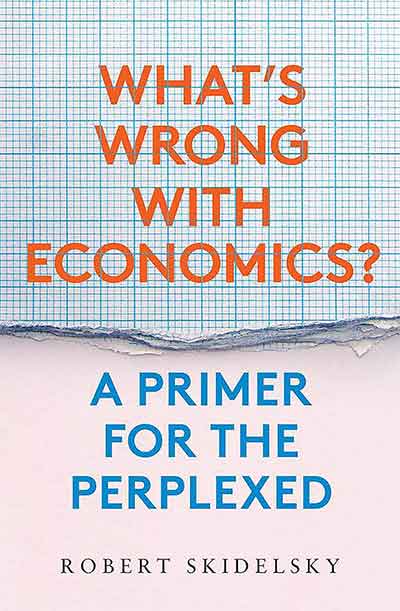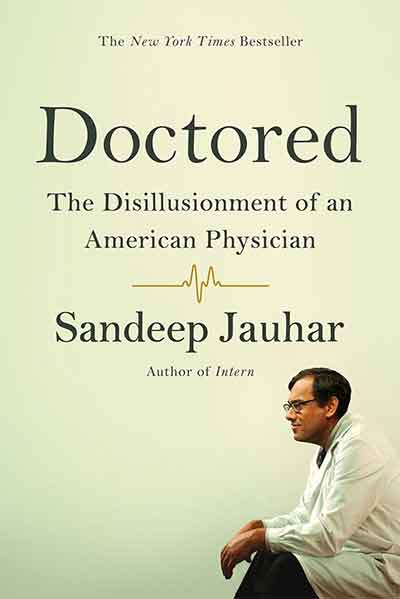
“Anyone with a sense of history would have realized that the hubristic attempt to make the world into a frontier- and culture- free single market would end in tears”; this is how Robert Skidelsky, one of the leading economists of today, observes the present economic turmoil. The predictability of mathematical modeling of neoclassical economics began to be widely questioned with the collapse of the U.S. economy in 2007-08. The economic downturn began abruptly without giving a hint to anyone working in the field, prompted many economists to take a more in-depth critique of mainstream economic theories. Hundreds of authentic studies and books have been published on the subject. John T. Harvey’s “Contending Perspectives in Economics”(2015), “Rethinking Economics: An Introduction to Pluralist Economics”(2017), Steve Keen’s Debunking Economics: The Naked Emperor of the Social Sciences” (2011) and Debunking Economics: The Naked Emperor Dethroned” (2017) are excellent examples of such critiques.
Robert Skidelsky’s “What’s Wrong with Economics? A Primer for the Perplexed”, questioning the methodology of neoclassical economic theories itself, is the latest book in the genre. In his book, Skidelsky explains; the roots of the inability to predict economic collapse do not lie with the incompetence or inattention of individual economists, but the problem entwined in its methodology. Before going into the details of the book, it would be better to know a little about the author.
Robert Skidelsky is a British economic historian and authored a three-volume award winning biography of British economist John Mynard Keynes. He holds a bachelor’s degree and a research degree in history and political science. Skidelsky expanded his interest in the field of economics little later. It can be seen that academic scholarship in the field of history and politics has helped him to approach economics from a different perspective. Later, Skidelsky became Chair of the Department of Economics at the University of Warwick.
The Author’s unique academic background allows him to assert that, “the economic theories, as claimed by their proponents, are far removed from the universal truth and are related to specific historical contexts and time”. Skidelsky argues, the economists operate without the view that economic theories are a reflection of historical conditions and the power structures of the time. It is important for students to get a sense of which period and place they are living through, and the power relations of their societies without swallowing the view that economic doctrines are ‘merely’ reflections of the historical conditions and the power structure of the day.
Man: A Calculating machine?!
Throughout the book, the author raises the question of why neoclassical economic theories simply transformed human into an ‘economic man’? Is the unlovely creature homo economicus intended to be a realistic description of a human, an ideal type, or simply a requirement of deductive theory? Attempts by mainstream economists to define human behavior through mathematical modeling from the desire to imitate the laws of physics is misleading neoclassical economics, Skidelsky argues. Economists reduce social structures to economic transactions and present single aspect of human conduct as the universal law of all human behavior. But at the same time, when confronted with emotional urges such as love, devotion, kindness, courage, honesty, resistance, desire etc., the methodology falls into a vicious circle.
We heard another similar observation from Robert F. Kennedy (1968), the US presidential candidate who was assassinated during the election campaign. Kennedy’s famous words about the Gross National Product were; “our Gross National Product, counts air pollution and cigarette advertising, and ambulances to clear our highways of carnage. It counts special locks for our doors and the jails for the people who break them. It counts the destruction of the redwood and the loss of our natural wonder in chaotic sprawl. It counts napalm and counts nuclear warheads and armored cars for the police to fight the riots in our cities. It counts Whitman’s rifle and Speck’s knife, and the television programs which glorify violence in order to sell toys to our children.
Yet the gross national product does not allow for the health of our children, the quality of their education or the joy of their play. It does not include the beauty of our poetry or the strength of our marriages, the intelligence of our public debate or the integrity of our public officials. It measures neither our wit nor our courage, neither our wisdom nor our learning, neither our compassion nor our devotion to our country, it measures everything in short, except that which makes life worthwhile”.
This makes it clear that the models based on the methodology adopted by mainstream economics allow only limited possibilities. Skidelsky points out the economist’s radar screens do not capture events which may occur outside its scope.
Mainstream economists aim to establish ‘laws’ about human behavior as machines, but they forget that man is part of a complex system and his ideas cannot be explained by the simple laws in which physics builds. Humans reflect on their experiences and set goals for themselves. Their surroundings and complex paths are interconnected. The morality of their actions confuses them and prepares them to adapt positively to new circumstances. They transform the world with their own future through the discourse of the mind and imagination. Skidelsky explains that, trying to measure or analyze by monolithic laws can lead to erroneous conclusions. Theories which do not include human life and social conditions are more likely to lead to inevitable mistakes. What happens when we try to impose the laws of physics to the human mind without recognizing the complexities is nothing else. Although the principle of limited variety is true of the physical world, it is impossible to predict it through mathematical modeling because human nature is very different from it. Reluctance to acknowledge this fact is a fundamental problem.
The methods which produce ‘laws’ in physics produce ‘doctrines’ in economics. Skidelsky argues, “the hypothesis of economics cannot be tested, so that, they resemble religious beliefs. The accusation here is not about false logic, but about reasoning based on its over-simple premises”.
Losing moral ground
The transformation of economics from a moral philosophy to a branch of science, based on mathematical theories, has lost its ethical base and pluralistic perspectives. Here we have to remember, that the early economists, like Adam Smith, known as the father of classical economics, were basically moral philosophers. The lack of pluralism in perspectives and deviations from moral philosophy leads to a lack of visions that should have been the basis of a broader perspective. They eliminate the emergence of pluralistic theories that embodied different aspects of social life.
The erroneous indication put forward by methodological individualism, which neo-classical economists firmly believe in, is that individual choices are like parallel straight lines. It rejects relationships between individuals and the social structures in which their choices are formed. The fundamental flaw of these approaches is that it treats human as a calculating machine.
The author alleges; the transition from the perspective of ‘growth of the wealth’ (Smith) to ‘efficient allocation’ (Robbinson), from the institutional perspective to personal attitudes, from narratives to mathematics has accelerated the economization of all sectors. Skidelsky points out the main difference between philosophy and economics. Philosophy talks about ends and means, while economics talks about wants and means. The difference is important. While philosophers consider good as the ends, to economists ‘ends’ are simply what people want. A deviation from the norm separates economics from morality. Economics thereby denies the fact that man is in constant conflict with moral choices.
Alfred Marshall (1842-1924) wrote in his Principles of Economics that “economics is the study of the material requisites of well-being.” But we see that all economists, including Marshall, fail to give an accurate definition of well-being.
Joseph Schumpeter views equilibrium as the “magna charta of exact economics”. Economists shares convictions about equilibrium with physics and they believe economic equilibrium is secured by the opposing forces of supply and demand. They consider equilibrium as a necessary criterion for the market system or as a rational need for quantitative prediction or as a mathematical ideal.
Skidelsky asserts, it is not possible to prove the equilibrium of supply and demand in a single market or system as a whole without making unrealistic assumptions about human behavior and considering stationary conditions. The tendency to move towards equilibrium can be considered natural. But economists ignore the fact that these trends are so complex that it is impossible to achieve the accuracy required for predicting specific events.
Models and Laws
Paul Samuelson (1915-2009) argues that “economics is the queen of the social sciences because of its ability to make scientific and accurate predictions”. Such a prediction is made possible by the laws that govern economics. It is through ‘modeling’ that enables them to formulate laws that represent real world movements through theoretical constructions. In economics it is mainly done by using mathematical theories. The main limitation of creating such a model is that an ‘open system’ has to be converted to a ‘closed’ one, according to mathematical conveniences. The problem is that the model does not represent the complexities, interactions, and uncertainties of the real world. Neoclassical economists fail to recognize the theoretical representation of the closed system as a failure of economic modeling.
Economics is different from natural science. It is not possible to use the experimental method to create rules in it. A scientific theory cannot demand facts to equate its assumptions, but this is what economics strive for. Skidelsky explains that the failures of mainstream economic theories are not entirely due to internal inconsistencies in their models, but to the failure of the models to consider the facts observed.
The ‘economic man’ is not a social being
‘Economic man’ of neoclassical economics is a myth, it puts forward ‘human nature marked by a boundless desire’. The simplest sociological theory is that humans are inextricably linked by biology, experience and culture. Therefore, it is essential to recognize how people relate to each other socially, how society shapes their values, and how they shape social institutions and the social dimensions of economic cooperation. “Economics deals with ascertainable facts, while ethics deal with valuation and obligations. The two fields of enquiry are not on the same plane of discourse”, with these words of Lionel Robbins (1898-1984), economics had been deviated from moral science.
Not only does economics offer more than it can fulfill, but it also envisions a particular type of human being, an intelligent and progressive-minded agent. It underestimates the value of its promises. Proper economic policy making in the present requires not only a proper analysis of the economic crisis, but also a strong social imagination. Economics cannot do all this on its own. For economics to be useful, its confidence on the self regulating market needs to be reformed.
Skidelsky points out that modern economics can only be redefined by focusing on the role of government, the distribution of power, and the influence of both on the distribution of wealth and income. In fact, a large number of economists today share the same mindset. An economic theory cannot go on for long by looking at the insatiable wants of the individual and believing in the free will of the market. The question asked by the great economist Karl Polyani (1886-1964), “how much disruption and inequality will societies tolerate for the sake of progress?”, becomes more and more relevant today.
What’s Wrong with Economics? A Primer for the Perplexed
Robert Skidelsky
Page: 243
Published by: Yale University Press
Year : March 2020
K. Sahadevan is a social activist
GET COUNTERCURRENTS DAILY NEWSLETTER STRAIGHT TO YOUR INBOX













































